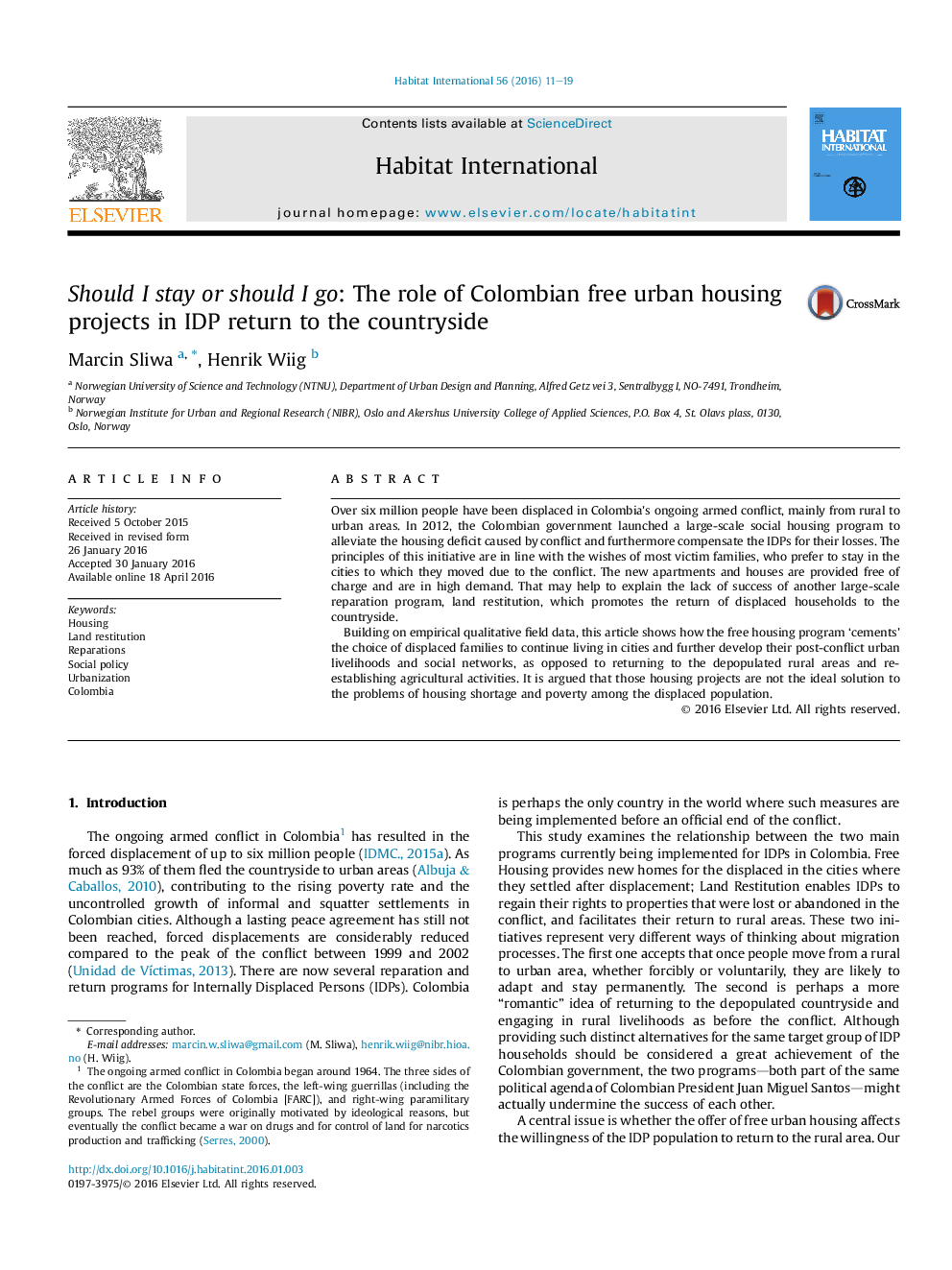| Article ID | Journal | Published Year | Pages | File Type |
|---|---|---|---|---|
| 1047692 | Habitat International | 2016 | 9 Pages |
•The Internally Displaced Persons (IDPs) in Colombia prefer to stay in cities.•The offer of Free Housing for Colombian IDPs decreases their likelihood to return.•Few IDPs take advantage of the Land Restitution program and return to rural areas.•Providing “free” social housing units is not the ideal solution for their problems.•Upgrading informal settlements improves the IDPs' situation and reduces relocation.
Over six million people have been displaced in Colombia's ongoing armed conflict, mainly from rural to urban areas. In 2012, the Colombian government launched a large-scale social housing program to alleviate the housing deficit caused by conflict and furthermore compensate the IDPs for their losses. The principles of this initiative are in line with the wishes of most victim families, who prefer to stay in the cities to which they moved due to the conflict. The new apartments and houses are provided free of charge and are in high demand. That may help to explain the lack of success of another large-scale reparation program, land restitution, which promotes the return of displaced households to the countryside.Building on empirical qualitative field data, this article shows how the free housing program ‘cements’ the choice of displaced families to continue living in cities and further develop their post-conflict urban livelihoods and social networks, as opposed to returning to the depopulated rural areas and re-establishing agricultural activities. It is argued that those housing projects are not the ideal solution to the problems of housing shortage and poverty among the displaced population.
